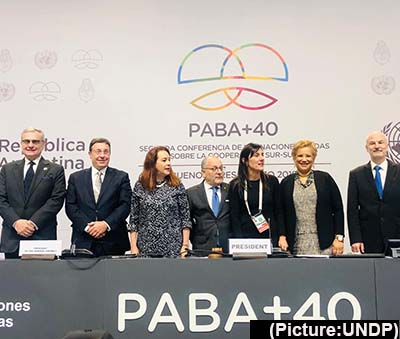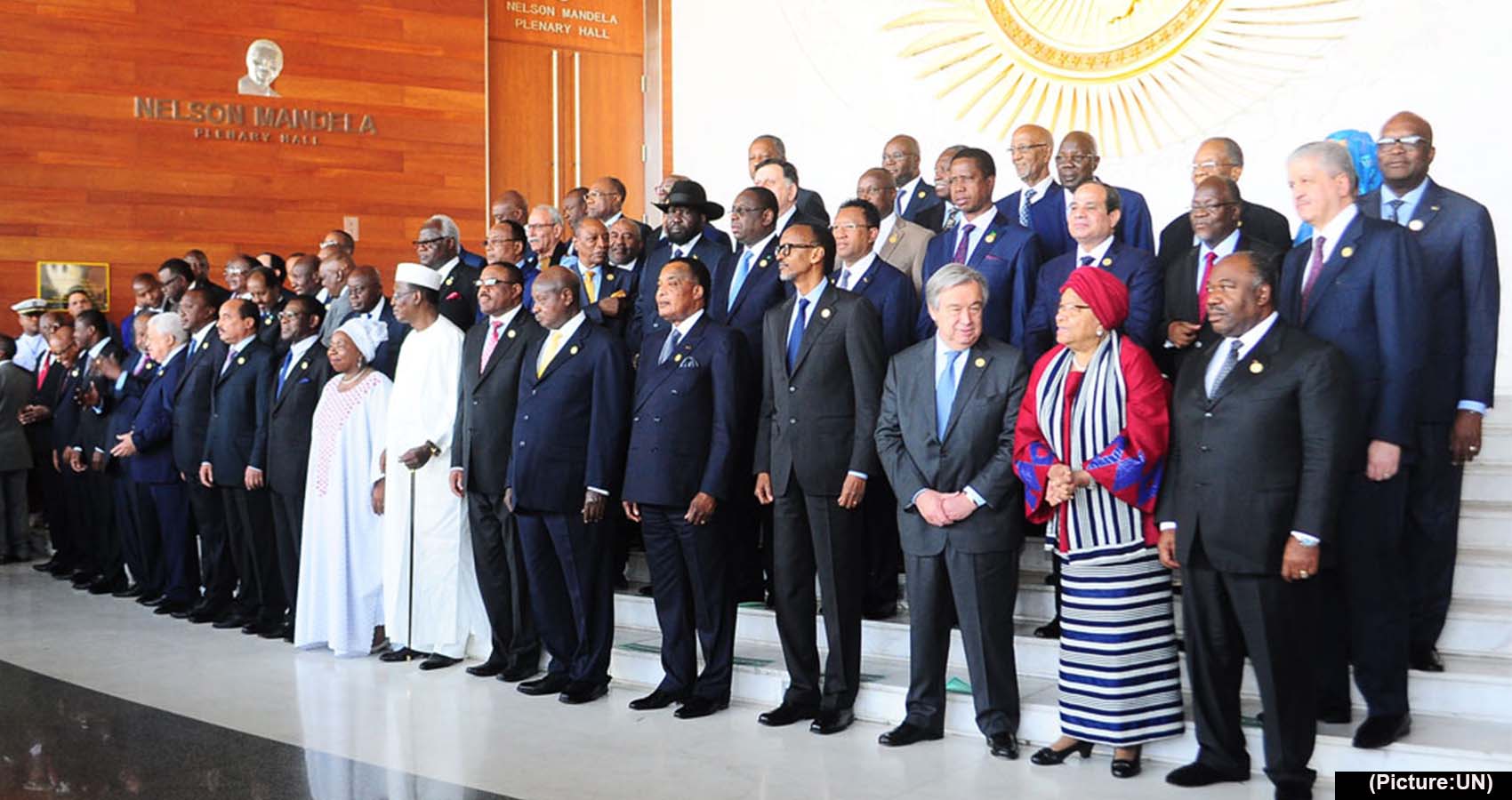The 2021 high-level commemoration of the United Nations Day for South-South Cooperation, organized ahead of the opening of the seventy-sixth session of the United Nations General Assembly, provided an opportunity to discuss Southern solidarity in support of a more inclusive, resilient and sustainable future while effectively responding to the global COVID-19 crisis across the global South. The 2021 United Nations Day for South-South cooperation presented the opportunity for stakeholders to highlight concrete follow-up to the twentieth session of the High-level Committee on South-South Cooperation (HLC), which took place from 1 to 4 June 2021 in New York. “South-South and triangular cooperation must have a central place in our preparations for a strong recovery”, says Secretary-General António Guterres, reminding us that “we will need the full contributions and cooperation of the global South to build more resilient economies and societies and implement the Sustainable Development Goals”.
 The General Assembly High-level Committee (HLC) on South-South Cooperation met in June to review progress made in implementing the Buenos Aires Action Plan (BAPA+40) and other key decisions on South-South cooperation. This HLC session considered follow-up actions arising from previous sessions and hosted a thematic discussion on “Accelerating the achievement of the SDGs through effective implementation of the BAPA+40 outcome document while responding to the COVID-19 pandemic and similar global crises”. The HLC hosted 75 member states – including a Head of State and Ministers from around the world – as well as 23 intergovernmental organizations, 25 UN entities, civil society and the private sector. More than 400 people participated during side events which HLC Bureau Members took the lead in organizing on issues of importance to the South.
The General Assembly High-level Committee (HLC) on South-South Cooperation met in June to review progress made in implementing the Buenos Aires Action Plan (BAPA+40) and other key decisions on South-South cooperation. This HLC session considered follow-up actions arising from previous sessions and hosted a thematic discussion on “Accelerating the achievement of the SDGs through effective implementation of the BAPA+40 outcome document while responding to the COVID-19 pandemic and similar global crises”. The HLC hosted 75 member states – including a Head of State and Ministers from around the world – as well as 23 intergovernmental organizations, 25 UN entities, civil society and the private sector. More than 400 people participated during side events which HLC Bureau Members took the lead in organizing on issues of importance to the South.
Deliberations focused on actions arising from the Report of the Secretary-General to the nineteenth session, which proposed concrete ways to enhance the role and impact of the United Nations Office for South-South Cooperation, as well as the key measures taken to improve the coordination and coherence of UN support to South-South cooperation. In terms of important messages and statements, Member States highlighted that COVID-19 has taught the world that South-South development cooperation is critical to an effective response to emergencies.
South-South cooperation was strongly reaffirmed as the means to support countries’ national development priorities, alignment with the SDGs, and the acceleration of achievement toward the 2030 Agenda. South-South cooperation was also recognized as an effective approach to accelerate and deepen the efforts to build back better, healthier, safer, more resilient and sustainable. It was emphasized that over the past decade, the world has witnessed the increase in the scale, scope, and diversity of approaches of South-South and triangular cooperation.
Countries of the Global South have strengthened institutional capacities for cooperation by formulating and implementing national development policies, strategies, and agencies, and by developing information and performance management systems for data gathering, expertise and technology mapping, and impact assessment. With the strengthening of national capacities on South-South and triangular cooperation there is opportunity to collect and exchange evidence of how much South-South and triangular cooperation is being done, how it benefits people, and how to create institutional mechanisms to help countries align South-South collaboration with their national and regional agendas.
As the world fights the COVID-19 pandemic and strives to build back better, international development organizations must offer innovative, timely responses to remain relevant. This includes new forms of coordination based on more “coherent” and “integrated support” capable of unleashing change on the ground. Traditionally, South-South and triangular cooperation has taken place among governments on bilateral terms. As development becomes more dynamic in nature and unprecedented in scale, South-South and triangular cooperation is now used to source innovation from wherever it is.
Also highlighted was that South-South and triangular cooperation is increasingly recognized as an important complement to North-South cooperation in financing for sustainable development. UNOSSC will continue to promote, coordinate and support South-South and triangular cooperation globally and within the UN system. It will also continue to support governments and the UN system to analyse and articulate evolving and emerging trends, dynamics and opportunities in South-South cooperation.
In response to Member States requests, UNOSSC consistently demonstrates strong convening power across the UN system and serves as secretariat of UN Conferences including BAPA+40. UNOSSC has developed research networks at the global level, compiling evidence of good practices in South-South cooperation toward achievement of the SDGs, and created a global network of think tanks on South-South and triangular cooperation. UNOSSC also offers the South-South Galaxy platform for sharing knowledge and brokering partnership. The Office also manages a number of South-South cooperation trust funds and programmes. Given UNOSSC’s mandate to support South-South and triangular cooperation globally and within the UN system, the Secretary-General requested UNOSSC to coordinate the preparation and launch of the UN System-wide Strategy on South-South and Triangulation Cooperation for Sustainable Development with the engagement of the UN Inter-Agency Mechanism for South-South and Triangular Cooperation, and other stakeholders.
The Strategy’s objective is to provide a system-wide policy orientation to UN entities in order to galvanize a coordinated and coherent approach to policy, programmatic and partnership support on South-South and triangular cooperation and increase impact across UN activities at all levels: national, regional and global. Implementation is governed by each entity individually, based on its own mandate and programme of work. UNOSSC is also currently developing its 2022-2025 Strategic Framework. It is an opportunity for the Office to catalyze the use of South-South and triangular cooperation to accelerate the speed and scale of action towards achieving the SDGs.
For example, the Office aims to offer a platform whereby: (i) countries of the Global South can exchange knowledge, develop capacities, and transfer technologies to address their own development priorities as well as coordinate and co-design solutions to shared development challenges; (ii) UN agencies, programs, and funds can strengthen their support to SSTC at the global, regional and country levels. No country is too poor to contribute to South-South cooperation for development, and no country is too rich to lean from the South. All partners have important elements to contribute. So, it follows that triangular cooperation is an important element of our work.
The COVID-19 pandemic has laid bare severe and systemic inequalities. The pandemic has also highlighted the importance of the digital revolution. Building institutional capacity in sub-Saharan Africa and LDCs through South-South and triangular cooperation is essential for countries to fully harness digital transformation and recovery. Triangular cooperation is a flexible platform where partners can mobilize different funding capacities in support of developing countries’ priorities. Triangular cooperation demands horizontality and shared governance approved by all parties. It is based on a clear respect for national sovereignty and the seeking of mutual benefit in equal partnerships.
Recovery from pandemic requires additional support, innovative development solutions and arrangements between public and private sectors. We must facilitate opportunities to expand development cooperation and its processes and to improve the effectiveness of multilateral cooperation. Fostering multi-dimensionality and multi-stakeholders approaches is the way forward to enhance development impact.
During the June HLC Member States highlighted that in the COVID and post-COVID era, the below priority areas for triangular cooperation could be considered: 1) health, 2) data infrastructure, 3) manufacturing capacity and supply chain for relevant medical material and equipment, as well as treatment; 4) solar energy and reducing carbon footprint; 5) a coalition for disaster resilient initiatives; and 6) currency swap arrangements from international financial institutions.











